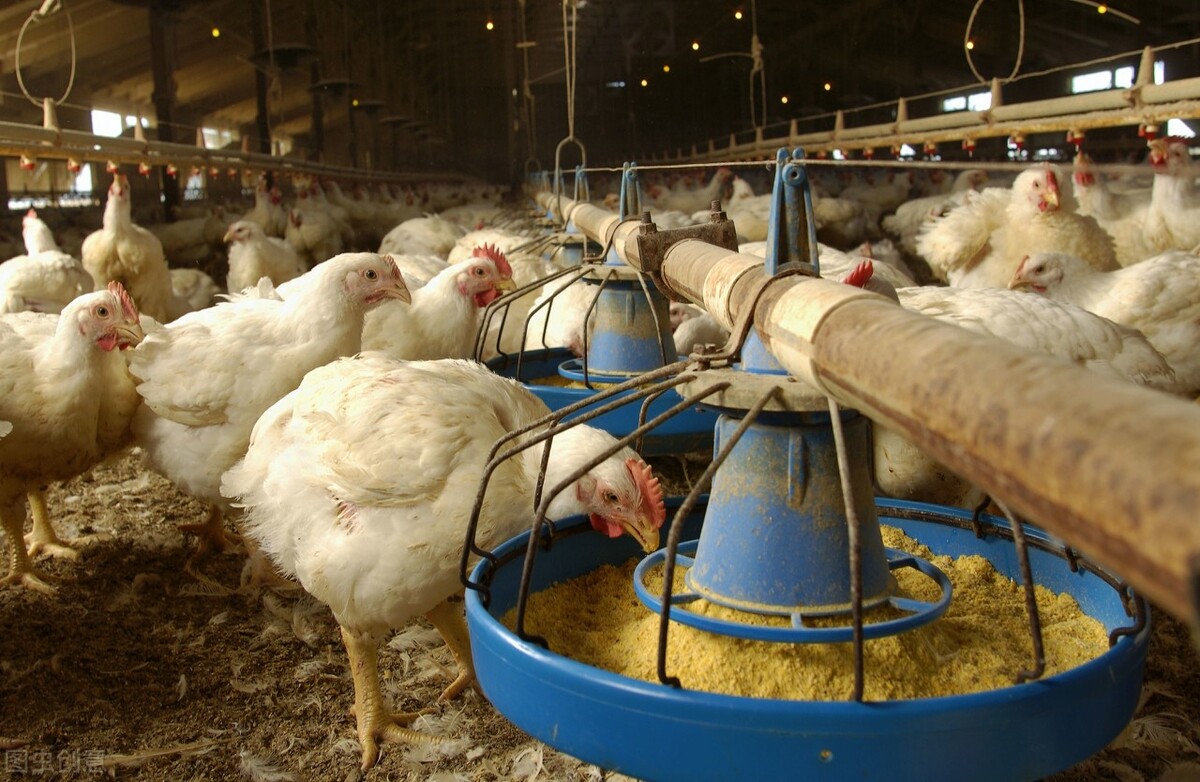The application of Astragalus polysaccharide in broiler chickens
Astragalus Polysaccharide (APS) is the main active component of Astragalus root, which has the biological functions of promoting growth and development, antiviral, anti-tumor, anti-aging, anti-oxidation and immune regulation. It is an ideal animal feed additive and immune enhancer. The reasonable addition of Astragalus polysaccharide in broiler breeding can improve the production and quality of broiler breeding. Today we will introduce how Astragalus polysaccharide is applied in the broiler industry.
The biological function of Astragalus polysaccharides
Boost immunity
A large number of studies have shown that APS can enhance immunity. Four different concentrations of APS and alfalfa polysaccharides were added into spleen lymphocytes and blood lymphocytes of broilers for culture, and it was found that they could significantly promote the proliferation of spleen and blood lymphocytes of broilers at a certain concentration, while APS had a better effect. The results showed that the immunoglobulin concentration and immune organ index of broilers were significantly increased when the proper amount of APS was added into the basic diet.
The antibacterial
Astragalus polysaccharide has good antibacterial effect. It can inhibit bacteria and related toxic products and enhance the body’s immune defense function. According to the determination of the minimum inhibitory concentration of astragalus polysaccharide and berberine on chicken E. coli, the final results showed that the antibacterial activity of berberine was increased by 3-7 times and that of Astragalus polysaccharide was increased by about 2 times. The combination of the two drugs can effectively reduce the number of drugs used and greatly improve the prevention and control of E. coli in chickens.
Application of Astragalus polysaccharide in broiler breeding
Feed additive
Relevant studies have shown that adding a certain amount of astragalus polysaccharide to the feed of broilers can effectively improve the absorption of various nutrients in the small intestine of broilers, and improve the antioxidant and immune function of broilers. An experiment showed that the growth performance of one-day-old Sanhuang broilers was significantly improved after adding 0.6% and 0.3% APS in the basic diet, and the body weight, the number of Salmonella and Escherichia coli in the cecum, the number of bifidobacteria and Lactobacillus in the experimental group were significantly higher than those in the control group. In conclusion, reasonable addition of APS in the feed can effectively improve the growth performance of broilers, further optimize the intestinal microflora of broilers, and reduce the mortality rate.
Immune enhancer
The application of APS as immune enhancer in actual broiler breeding can effectively improve the disease resistance of broilers, and the combined application with the vaccine can further improve the immune effect. Astragalus polysaccharide (APS) immune adjuvant, leimisole hydrochloride and Astragalus multiple injections were applied at the same time with the oil emulsion inactivated vaccine of New city disease. The results showed that all of them could effectively improve the vaccine immunity. Among them, the combination of APS and vaccines had a very obvious effect on the production of antibodies in broilers. In addition, the formation rate of E- rose wreath and spleen and bursa of Fabrhius index was greatly improved. At the same time, dietary supplementation of APS can significantly improve the immune function of chickens and the immune effect of vaccines, and APS can be widely used as immune enhancer in poultry feed.
A total of 60 7-day-old white feathered broilers were randomly divided into 2 groups (control group and experimental group), with 30 broilers in each group. The control group was fed a basic diet, and the experimental group was fed 0.1% Astragalus polysaccharide extract in the dietery. Before the start of the experiment, broilers in the control group and the experimental group were immunized with 1 head/part of live attenuated Newcastle disease vaccine by nose drop. The experiment lasted for 35 days, and the daily feeding management of the control group and the experimental group was the same.
After immunization, the antibody titers of Newcastle disease in both experimental and control groups gradually increased and reached the peak value 28 days after immunization. Compared with the control group, there was no significant difference in Newcastle disease antibody titer at 7 days before and after Newcastle disease vaccine immunization (P>0.05). The titer of Newcastle disease antibody was significantly increased at 14d, 21d, 28d and 35d after vaccination (P<0.05). The results indicated that 0.1% Astragalus polysaccharide in the diet of broilers could enhance the immune effect of the Newcastle disease vaccine.
Prevention and treatment of diseases
Astragalus polysaccharide can prevent and control broiler disease and improve the survival rate of broilers. The application of different amounts of astragalus polysaccharide can effectively resist the strong toxicity of infectious laryngitis of chicken, and the final results show that the prevention and treatment results are similar. An experiment has shown that the protection rate of 5 mL APS for a broiler is about 75%, and the protection rate of 2 mL APS is 50%, which also represents that APS has a very significant therapeutic and preventive effect on infectious laryngitis of broilers. The morbidity and mortality of 1-day-old broilers were significantly reduced after Marek’s disease virus infection, and the T lymphocyte proliferation response and IL-2 inducible viability of broilers were significantly decreased after infection. When injected with astragalus polysaccharide (APS) and lentinus edosinis (Lentinus edosinis) in infected broilers, the incidence of the disease was 21% and 16%, and the mortality was 8% and 5%, respectively. The proliferative response of T lymphocytes and the inducible activity of IL-2 were significantly improved. In conclusion, astragalus polysaccharide has a strong effect on disease prevention and treatment.



